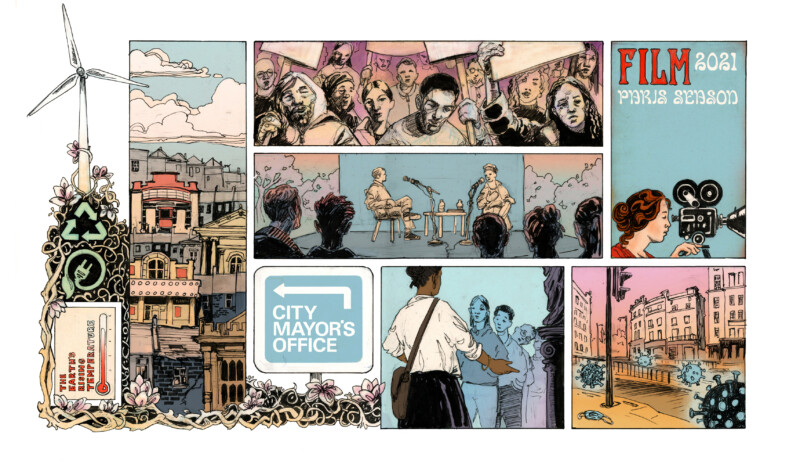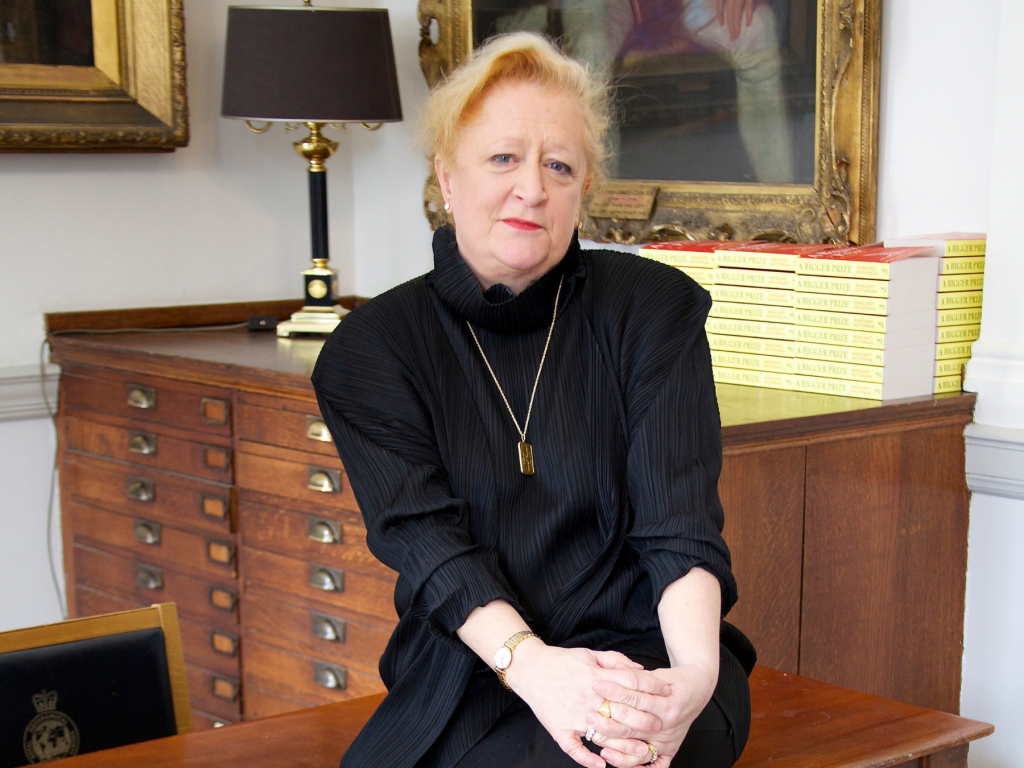How Should We Think About the Future? Panel discussion

Unfortunately this event has had to be cancelled. We hope to rearrange it for spring 2022.
If you had already booked a ticket, Watershed Box Office will contact you to issue a refund.
Our panellists discuss the ways in which we can create the futures we want and can believe in.
The future may be grim with climate disaster among other crises to be confronted. There’s no doubt we face a malaise about – even a fear of – the future. Some argue too that there’s a crisis of imagination. What is the role of hope, optimism and the imagination in changing cities for the better? How do we think long-term about cities in a short-term world? What are the changes we need to make to civic governance, behaviour, attitudes to nature? What tools can help us think about the future better? What do we want to leave behind in terms of being a good ancestor both as people and with regard to the legacies of cities? How can we mine our own creativity and humanity?
We need new thinking, new tools and new action. At the same time, we can take inspiration from past campaigns and actions for change.
Debating these and more issues are David Farrier (University of Edinburgh and author of Footprints: In Search of Future Fossils); journalist and writer Cal Flyn, whose latest book is Islands of Abandonment: Life in the Post-Human Landscape; Joy Green, Principal Futures Specialist, Forum for the Future; writer and commentator Margaret Heffernan, author of Uncharted: How to Map the Future Together; public philosopher Roman Krznaric, author of The Good Ancestor: How to Think Long Term in a Short Term World; and Geoff Mulgan, Professor Collective Intelligence, Public Policy and Social Innovation at University College London.
Please note there will be a short break in the middle of this session.
David Farrier’s Footprints: In Search of Future Fossils, Cal Flyn’s Islands of Abandonment: Life in the Post-Human Landscape, Margaret Heffernan’s Uncharted: How to Map the Future Together and Roman Krznaric’s The Good Ancestor: How to Think Long Term in a Short-Term World are available from Waterstones, our bookselling partners.

David Farrier is Professor of Literature and the Environment, University of Edinburgh. Before being appointed at Edinburgh in 2010, he was Lecturer in Postcolonial Literature for four years at the University of Leicester. In 2017 he held a Leverhulme Visiting Fellowship at the University of New South Wales.

Cal Flyn is an award-winning writer from the Highlands of Scotland. She writes literary nonfiction and long-form journalism. Her first book, Thicker Than Water, which explored questions of colonialism and intergenerational guilt, was a Times book of the year. Her second book is Islands of Abandonment, about the ecology and psychology of abandoned places. Flynn’s journalistic writing has been published in Granta, The Sunday Times Magazine, Telegraph Magazine, The Economist and others. She is a columnist for Prospect, deputy editor of literary recommendations site Five Books, and a regular contributor to the Guardian. Flynn has been writer-in-residence at Gladstone’s Library and the Jan Michalski Foundation in Switzerland. She was made a MacDowell fellow in 2019.
Image credit: Nancy MacDonald

Joy Green is Principal Futures Specialist, Forum for the Future where she has worked since 2007. She believes that many futures are possible, some of which are sustainable and which we need to visualize and act on urgently. Her work involves futures projects using techniques such as scenarios, visions, horizon scanning.

Margaret Heffernan produced programmes for the BBC for 13 years. She then moved to the US where she spearheaded multimedia productions for Intuit, The Learning Company and Standard&Poors. She was Chief Executive of information Corporation, ZineZone Corporation and then iCast Corporation. Her third book, Wilful Blindness, was named one of the most important business books of the decade by the Financial Times and in 2015 she was awarded the Transmission Prize for A Bigger Prize. Her TED talks have been seen by over nine million people. She is Lead Faculty for the Forward Institute’s Responsible Leadership Programme and, through Merryck & Co, mentors CEOs and senior executives of major global organisations. Her most recent book, Uncharted: How to Map the Future, was published in 2020.

Roman Krznaric is a public philosopher who writes about the power of ideas to change society. His latest book is The Good Ancestor: How to Think Long Term in a Short Term World. His previous international bestsellers include Empathy, The Wonderbox and Carpe Diem Regained. He is founder of the world’s first Empathy Museum and is currently a Research Fellow of the Long Now Foundation.
Image credit: Kate Raworth

Geoff Mulgan is Professor Collective Intelligence, Public Policy and Social Innovation at University College London. Prior to that he was Chief Executive of Nesta, the UK’s innovation foundation. Between 1997 and 2005 he had roles in the UK government, including Director of the Government’s Strategy Unit and the Performance and Innovation Unit, and Head of Policy in the Prime Minister’s Office. From 2004 to 2011 he was the first Chief Executive of The Young Foundation. He was the first director of the think-tank Demos.
Booking Information
Ticket booking is via Eventbrite. Please review Eventbrite’s terms and conditions and Privacy Policy as Bristol Ideas do not accept any responsibility or liability for the policies. You can read Bristol Ideas’ Privacy policy here.
Please note we only refund tickets if the event is cancelled. Events start punctually and, out of consideration to other audience members and speakers, our policy is not to admit or issue refunds to latecomers. Full Terms and Conditions here.
Unfortunately this event has had to be cancelled. We hope to rearrange it for spring 2022. If you had already booked a ticket, Watershed Box Office will contact you to issue a refund.
Festival of the Future City
Festival of the Future City takes place every two years in Bristol. This year – due to the pandemic – the festival brings together live on-stage, live online and pre-recorded events. Check the project page for details and follow #FutureCity21 on Twitter.




